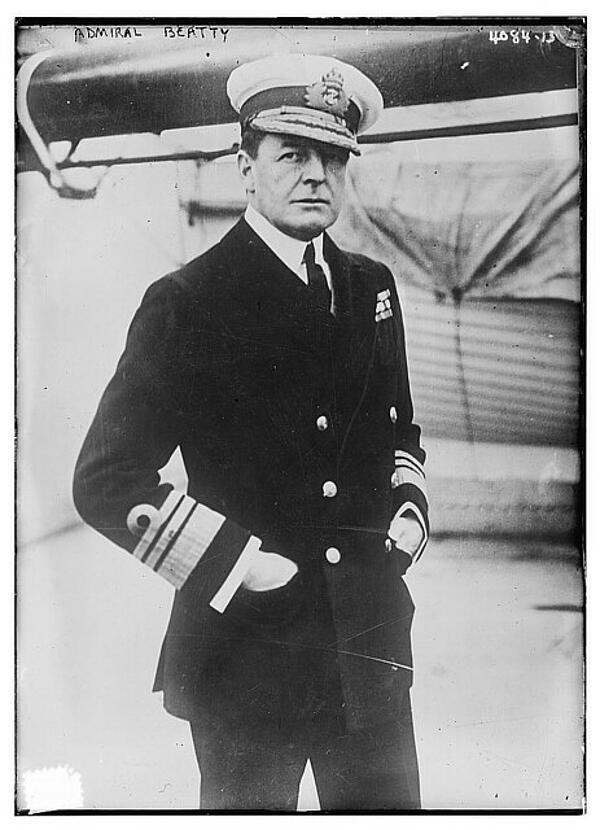Admiral David Beatty
Admiral David Beatty was born in January 1871 and joined the Royal Navy in 1884. By 1896 he had been appointed second in command of the Nile naval brigade and he was personally selected by Lord Kitchener for his 1898 Khartoum expedition.
Beatty went on to serve in the China War in 1900 during the Boxer Uprising and was promoted to captain as a result, taking command of a battleship aged just 29.
Just ten years later, Beatty was promoted to Rear admiral and became the youngest non-royal to do so since Lord Nelson. Three years later, in 1913, he was appointed commander of the First Battlecruiser Squadron and in July 1914 he joined the Grant Fleet off Scotland just in time for the war.

Beatty went on to serve at Heligoland, where his fleet sank three German ships while coming to the aid of Commodore Tyrwhittes Harwich, and Dogger Bank, where his fleet sunk the “Blucher”.
Beatty’s bold actions, as well as his reputation for aggressive tactics, started to create concern among some of the leading naval officers, including Admiral John Jellicoe.
However, after Jellicoe lost a huge number of ships in the Battle of Jutland, Jellicoe was replaced by Beatty.
In 1916, with Jellicoe in residence as First Sea Lord, Beatty was appointed Commander of the Grand Fleet. However, he believed, just as Jellicoe, that the Grand Fleet needed protection from the Germans. As a result, he did not allow any more naval engagements to take place from his appointment until the end of the war.
While some criticised this tactic, Beatty’s hesitance ensured that the North Sea remained out of German hands.
After the war was over, Betty was appointed Admiral of the Fleet, a post he held until 1927. He was also appointed First Sea Lord and Parliament voted that he should receive £100,000 in recognition of his actions.
In 1919, Beatty was also granted a peerage and became known as Earl Beatty, Baron Beatty of the North Sea and Brooksby. He continued to see success in his career until his death in March 1936.
MLA Citation/Reference
"Admiral David Beatty". HistoryLearning.com. 2026. Web.
